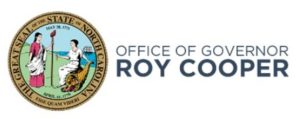
Special to Iredell Free News
RALEIGH — Gov. Roy Cooper on Wednesday called on Republican legislators to waive state income taxes on student loans that have been forgiven.
The General Assembly passed legislation to ensure that North Carolinians did not have to pay income tax on Paycheck Protection Program (PPP) loans that were forgiven. Not only did it forgive the income tax, but the General Assembly also allowed entities that received PPP loans to deduct expenses paid with the forgiven loans, which essentially gave them a double benefit.
Some legislators themselves benefited from this relief, but they have yet to extend any relief to hardworking families who are now facing an unexpected tax hit from the state.
“Legislative leaders need to find a solution that treats student loan forgiveness the same way they handled the PPP loan forgiveness that many of them received,” Cooper said. “Republican legislators were quick to help businesses and should now fix this fundamental unfairness for many hardworking people who will get hit hard by this.”
“At a time when we are announcing and creating thousands of jobs from companies that want a skilled, diverse workforce, we need to be encouraging young people to stay here and move here, not encouraging them to leave the state to avoid unfair taxes,” N.C. Secretary of Commerce Machelle Baker Sanders added.
Under the federal program, individuals making less than $125,000 in annual income will be eligible for student loan forgiveness up to $10,000. The amount increases to $20,000 for individuals who received a Pell Grant.
The White House has stated that student loan forgiveness will not be subject to federal income tax due to the student loan exception contained in Section 108(f)(5) of the Internal Revenue Code. As part of the American Rescue Plan, Congress enacted Section 108(f)(5) to expand the types of student loan forgiveness that would not be treated as taxable income for purposes of federal income tax. The General Assembly has failed to follow those same provisions for the North Carolina state income tax, causing student loan forgiveness to currently be treated as taxable income in North Carolina.



